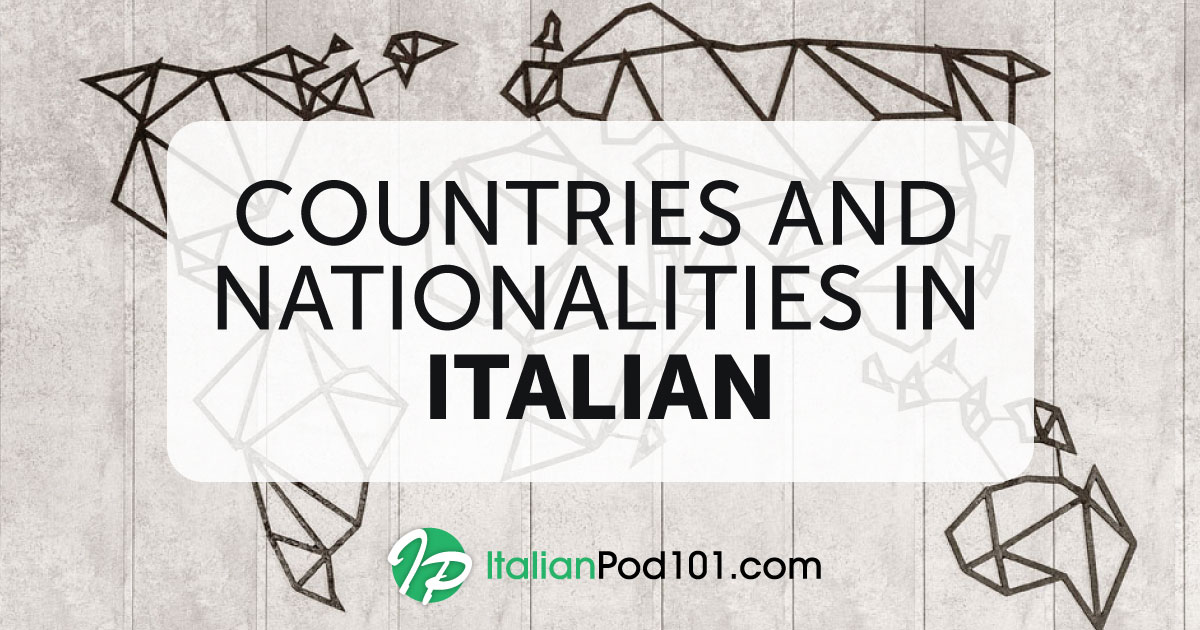Archive for the 'Team ItalianPod101' Category
June 29, 2020
Top 100+ Italian Nouns: Our Guide to Common Italian Nouns
When learning a new language, vocabulary is—almost—everything. That’s because when speaking with a foreigner in his or her language, people don’t usually mind if that person doesn’t talk with perfect grammar, and will understand them anyway.
But if you don’t know an important word, communicating will be a problem.
And nouns are the most important words of all. So, what are the Italian nouns you should learn while studying Italian? Check out our list here on ItalianPod101.
But first, some information on Italian nouns’ gender!
Table of Contents
Italian Nouns: Masculine and Feminine
The 100 Most Common Italian Nouns
Learn Italian at Your Pace with ItalianPod101
1. Italian Nouns: Masculine and Feminine
First... Show more
April 10, 2020
Life Event Messages: Happy Birthday in Italian & More
Being part of your family’s, friends’, and colleagues’ life events is important in having a loving and caring relationship with them. That’s why we at ItalianPod101 have listed the most important messages for life events in Italy: In this article, you’ll learn how to say Happy Birthday in Italian, Italian Christmas greetings, messages you can use in case of funerals or marriages, and much more.
With our guide to life event messages in Italian culture, you’ll always know what to say.
Table of Contents
The Best Messages for Life Events in Italy
Speak and Behave Like a Real Italian with ItalianPod101
1. The Best Messages for Life Events in Italy
1- How Do You Say Happy Birthday in Italian?
Birthdays are very important for... Show more
February 1, 2019
Secret Revealed: The Best Way to Learn a Language on Your Own
Can You Really Learn Italian Alone?
Learning a language on your own or without traditional classroom instruction may seem quite daunting at first. What if you run into questions? How do you stay motivated and on track to achieving goals?
Don’t worry, not only is it possible to learn Italian or any language without traditional classroom instruction: ItalianPod101 has created the world’s most advanced and extensive online language learning system. Not only is ItalianPod101 specifically designed to help you with learning a language on your own, it’s actually faster, more convenient, and less expensive than traditional classroom options!
Let’s look at some of the benefits of learning Italian or any language alone.
Also, don't forget to... Show more
December 25, 2008
Happy Holidays and Happy New Year From ItalianPod101.com!
Happy Holidays and Happy New Year from everyone here at ItalianPod101.com! We're grateful to have listeners just like you, and we're eagerly waiting for the upcoming year to learn Italian together!
And when the New Year comes around, be sure to make a resolution to study Italian with ItalianPod101.com!
Have a healthy and happy holiday season.
From the ItalianPod101.com team!









